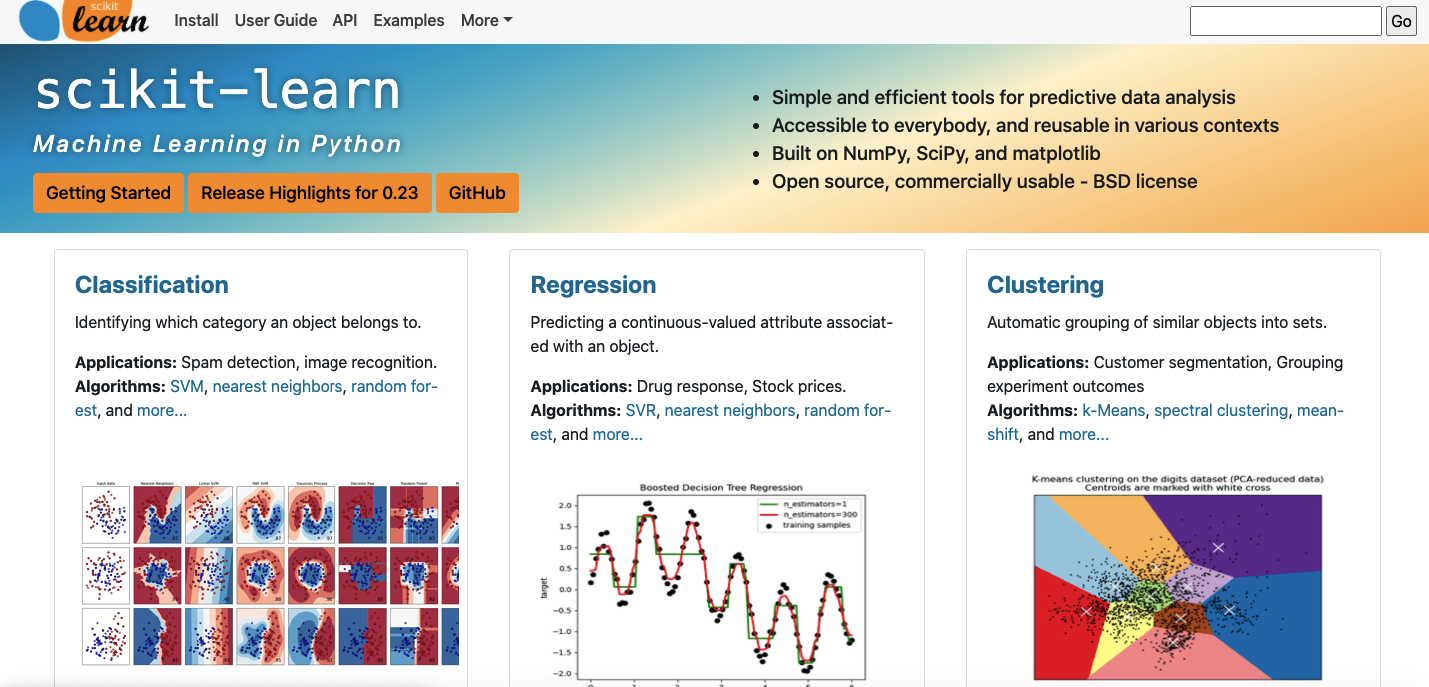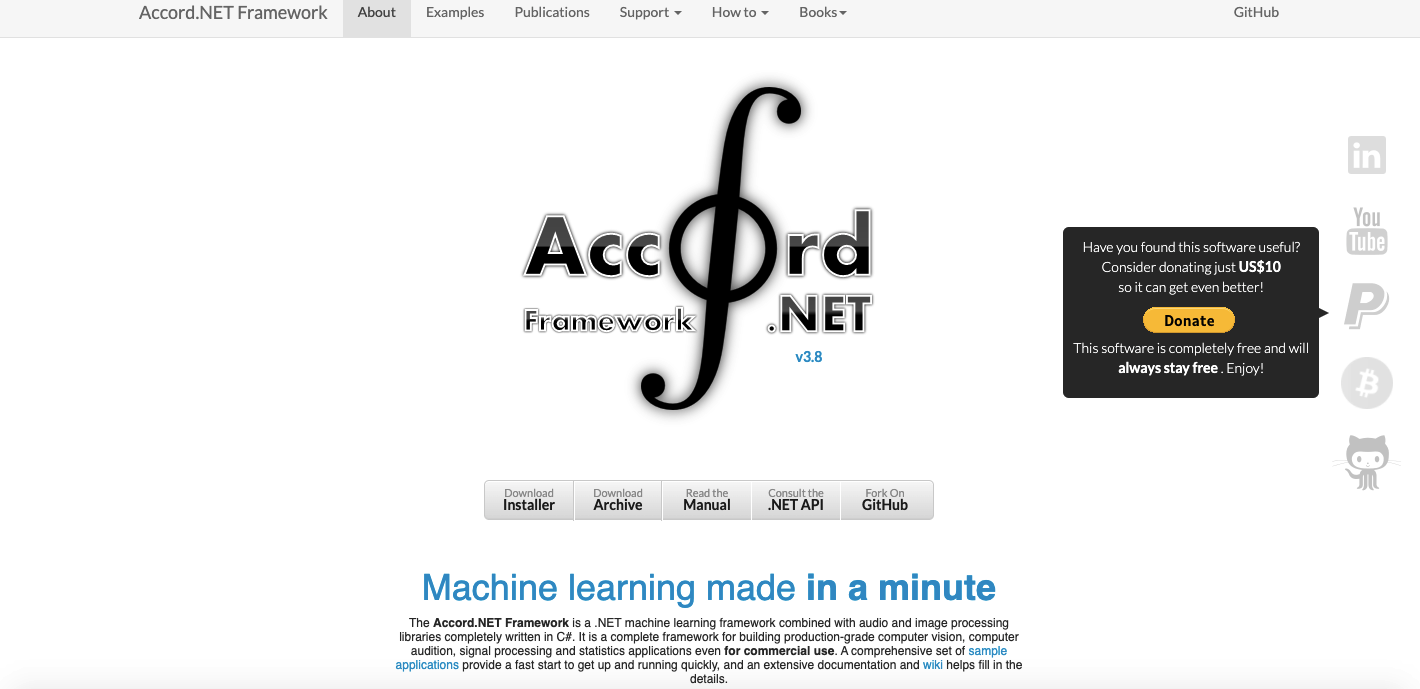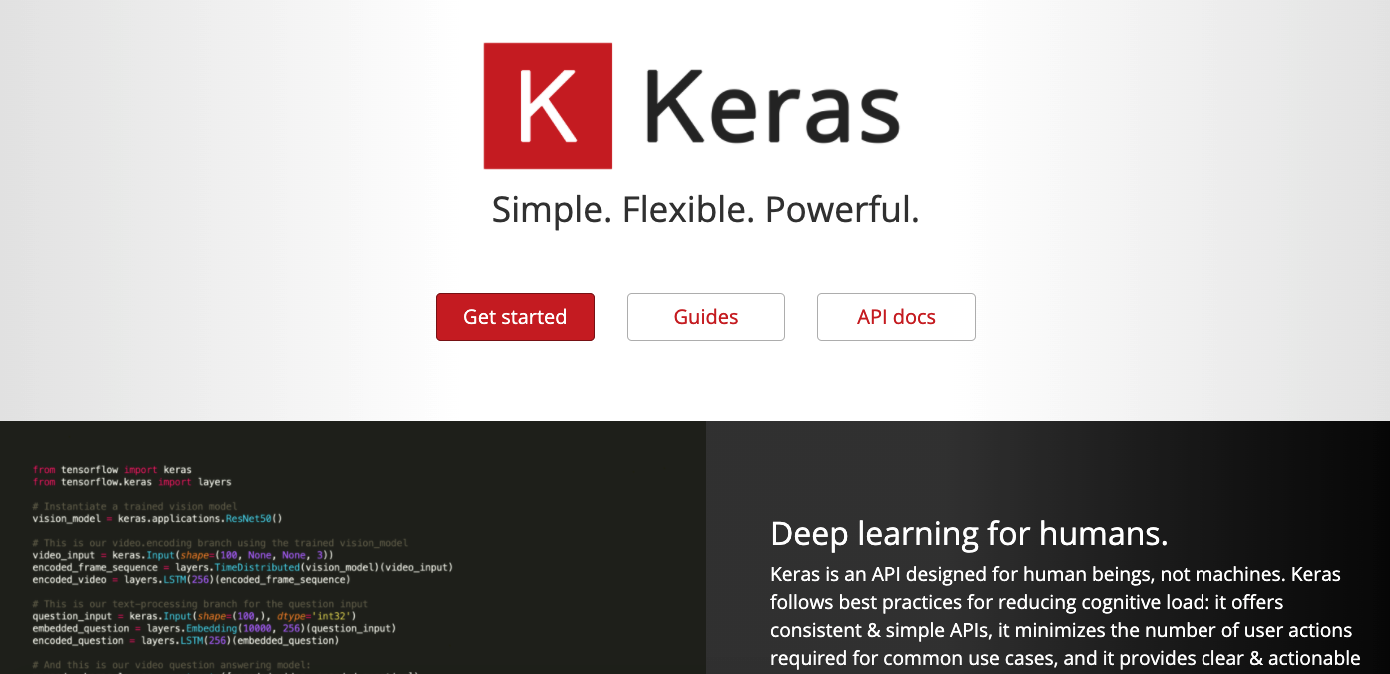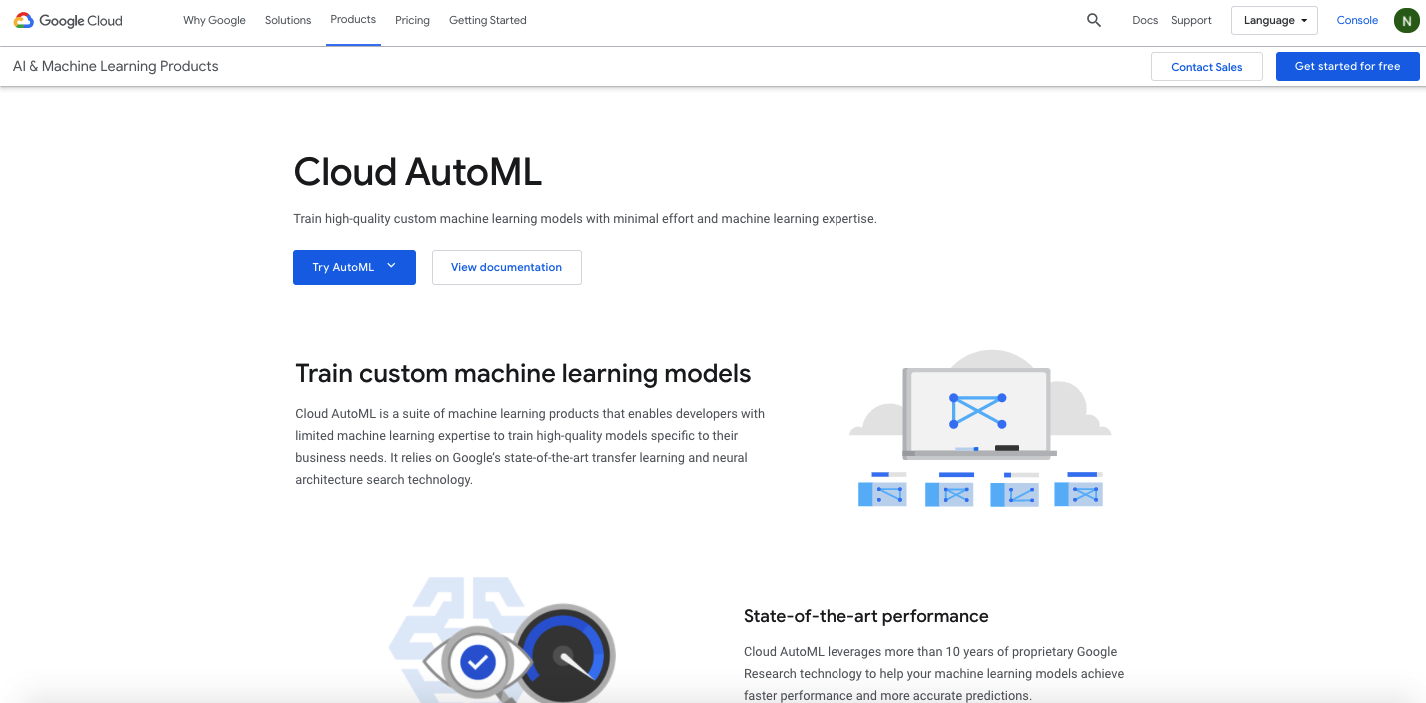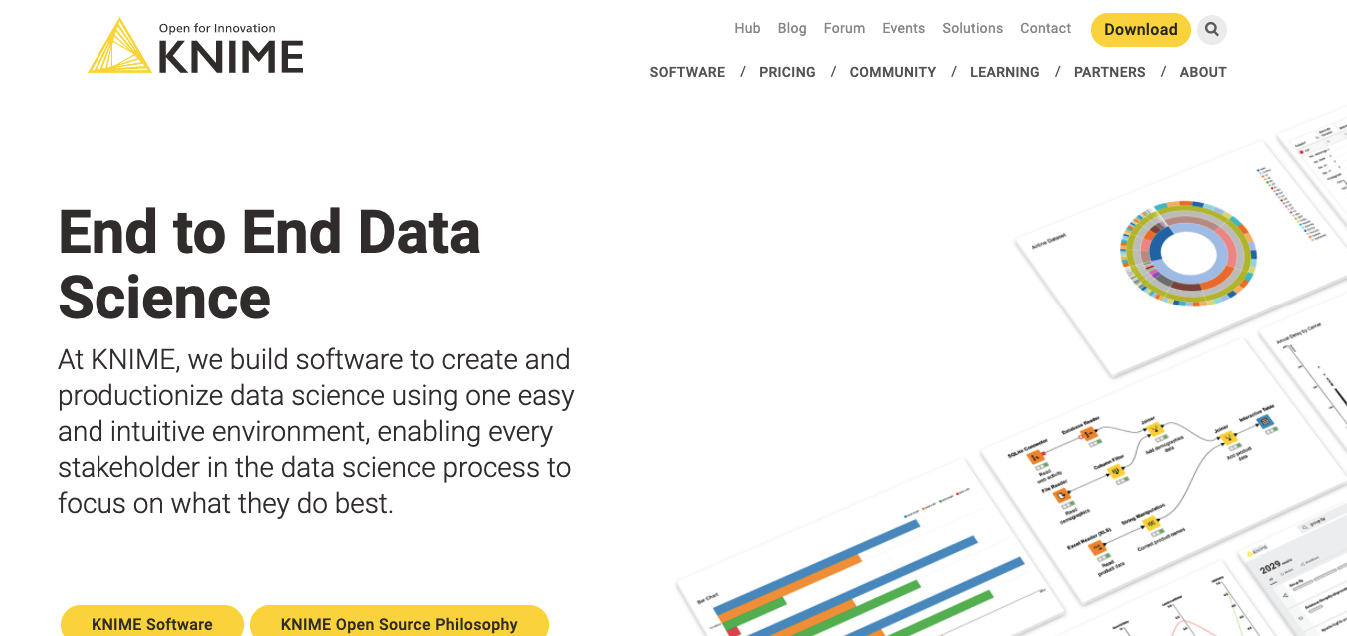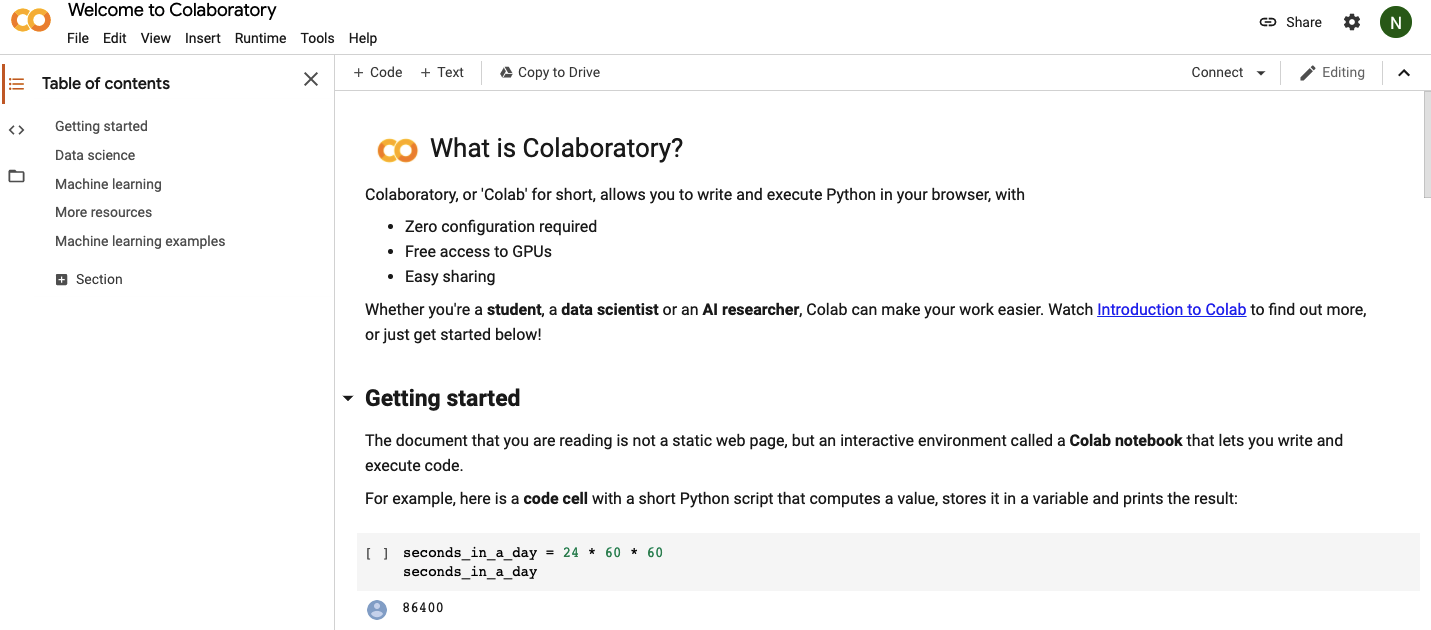Machine learning has become one of the prominent technical disciplines in recent times. It influences the different ways in which we use technology today, and interestingly, we aren’t even aware of it. Therefore, machine learning tools have become the focus of attention in recent times because they serve as instruments for helping users navigate machine learning effortlessly.
Machine Learning primarily aims at introducing intelligence in machines or developing the ability to learn in machines. As we are progressing gradually towards a future with the formidable dominance of technology in almost every aspect of our lives, machine learning is not far from becoming a necessity.
They are vital tools that can support users in trying out new variations with data and train their machine learning models. In addition, the ML tools are also helpful for discovering new methods alongside supporting the creation of your personal algorithms. The following discussion aims at painting an illustration of the top machine learning tools available presently.
Basics of Machine Learning
Before we move towards the list of machine learning tools, let us reflect on the basics of machine learning briefly. Machine Learning is the process of training machines for working according to specified instructions. The process involves the creation of machine learning algorithms that can enable systems for responding to particular commands in different scenarios.
The response of the ML algorithm depends on the continuous evaluation of data and acting on the decisions derived on the basis of data insights. There are many examples of machine learning technologies in your vicinity that you may not be aware of. For example, Netflix provides you reliable recommendations of shows and movies on the basis of your watch history.
Machine learning plays a crucial role here in the collection of data about the user’s watch history and selecting the data that matches the user preferences. The second notable example of machine learning is Facebook. Have you ever noticed how Facebook recognizes other people in a photo you have uploaded recently and suggests you as mutual friends? Machine learning uses data regarding a user’s available photos and the data in their friend list for making reliable predictions.
Types of Machine Learning
Another important concern to address before you reflect on the best machine learning tools refers to the types of machine learning. The three common types of machine learning include supervised, unsupervised, and reinforcement learning. You need a basic understanding of these machine learning variants for anticipating the effectiveness of different machine learning tools. In the case of supervised machine learning, the data of the past can help in making predictions.
The example, in this case, would be the filtering of spam emails. ML algorithms determine whether a particular email is spam or not. Unsupervised machine learning, on the other hand, involves the discovery of hidden patterns in data. The example of Facebook, as discussed earlier, comes in the category of unsupervised machine learning. Reinforcement machine learning is specifically tailored to improving the efficiency of ML algorithms.
Also Read: The Impact of Machine Learning on Cloud Computing
Top 10 Machine Learning Tools
Now, let us move towards the main agenda of this discussion, i.e., the list of machine learning tools promised earlier in the discussion. Although there is no specific ranking for the order in which the following tools are presented here, you can find diverse functionalities in each.
1. Scikit-Learn
Scikit-Learn is one of the common names among machine learning tools for beginners. Available as an open-source machine learning package, the unified platform of Scikit-Learn can address different purposes. Users could access the features of clustering, classification, preprocessing, dimensionality reduction, and regression with Scikit-Learn.
The foundation of Scikit-Learn stands over three significant Python libraries, such as SciPy, NumPy, and Matplotlib. The major functionalities of Scikit-Learn are evident in data mining and data analysis. In addition, it can also provide support for testing and training your ML models.
2. Pytorch
Pytorch is another notable mention among the most used machine learning tools due to its foundation in Python. It is a deep learning framework with better speed and flexibility of use. The effective capabilities of Pytorch regarding the GPU are one of the prominent reasons for the better usability of Pytorch.
Presently, it is one of the critical and most suitable machine learning tools available in the market. The focus of Pytorch on use cases involving tensor calculations and the development of deep neural networks. The variety of optimization algorithms and the Autograd Module in Pytorch makes it ideal for applications in neural networks. In addition, Pytorch also provides the features of distributed training as well as many other tools and libraries.
3. Accord.Net
If you are looking for machine learning tools suitable for image and audio processing tasks, then Accord.Net can be the ideal choice. It is a computational machine learning framework with the facility of machine learning libraries containing audio and image packages. These packages can support training machine learning models as well as in the development of interactive applications.
Some of the examples of interactive applications can include computer vision or audio applications. The applications of Accord.Net are also suitable for numerical optimization, numerical linear algebra, artificial neural networks, and statistics. Furthermore, you can also access the benefits of support for visualization libraries and graph plotting with Accord.Net.
Machine Learning as an application of Artificial Intelligence has brought so many benefits for businesses with Big Data. Check out what’s the Role of Big Data and AI in the Business World.
4. Keras
Keras is a deep learning Python framework that serves as an API for different neural networks. It provides adequate support for faster research and a simpler learning curve with its foundations on Python. Keras finds a place among modern machine learning tools on the basis of its capabilities for easier and faster prototyping.
In addition, it also provides reliable support for convolution networks alongside assistance for recurrent networks. Users also get the facility of combining two networks with Keras. You need CNTK, TensorFlow, or Theano for using Keras.
5. Google Cloud AutoML
Google Cloud AutoML is one of the promising introductions among machine learning tools for all the right reasons. First of all, the brand name of Google makes it a plausible option from the start. The main objective of Google Cloud AutoML is to improve the accessibility of artificial intelligence.
It provides various pre-trained models that users can leverage for creating various services such as speech recognition, text recognition, and others. Another prominent reason for the increasing popularity of Google Cloud AutoML is the availability of reliable ML and AI expertise.
6. KNIME
Among all the best machine learning tools, KNIME has a unique reputation of its own. It is a perfect tool that serves the purposes of a data analytics, integration, and reporting platform. KNIME is based on the data pipelining concept and is clearly evident in the combination of different components for data mining and machine learning in KNIME.
The better ease of use makes it one of the reliable machine learning tools. Users can understand the different workflows in data processing before executing them, thereby providing better transparency.
Preparing for a Machine Learning interview? Go through these top Machine Learning Interview Questions and get ready to ace the interview.
7. TensorFlow
TensorFlow is also one of the notable mentions among ML tools that are relevant in the present times. It is an open-source framework capable of addressing large-scale and numerical ML workloads. TensorFlow provides the ideal mix of machine learning and neural network models, thereby expanding the range of use cases for its implementation.
The user-friendly interface and multiple ways of deployment, such as script tags or installation through NPM, are also critical reasons to emphasize TensorFlow as a competent machine learning tool.
8. Weka
Weka has gained a position among the common machine learning tools in use today with its diverse functionalities. Being open-source software and having the ease of access with a graphical user interface, Weka is capable of addressing the key pain points of users with ML tools.
The primary use cases of Weka are evident in the fields of research and teaching. Weka has diverse functionalities, including data preparation, classification, clustering, regression, and visualization. It can find the most suitable applications in providing online training courses.
9. Google Colab
Google Colab is another promising ML initiative of Google to bring Machine Learning on Google Cloud Platform. It is a cloud service with support for Python that helps in building ML applications by leveraging libraries of other machine learning tools such as TensorFlow, Pytorch, and Keras.
Google Colab can provide a much-needed boost for machine learning research. However, its primary and most noticeable functionality aligns with support for fostering machine learning education.
10. Azure Machine Learning Studio
Azure machine learning studio launched by Microsoft is undoubtedly a striking addition to this list of ML tools. The Azure ML studio is Microsoft’s offering with the facility of machine learning services. It provides a very flexible approach for developing connections between datasets and modules.
Furthermore, Azure also provides AI functionalities to users along with Azure ML Studio. The compatibility of Azure ML Studio and its simple, as well as engaging user interface, make it a reliable option.
Also Read: An Introduction to Amazon Machine Learning
Are You Ready to Choose One Machine Learning Tool?
On the basis of the above-mentioned list, you might have drawn some impressions about the type of machine learning tool you need. However, there are many other machine learning tools that you have left unexplored. The technology stack in machine learning is improving daily with the introduction of new tools.
Therefore, it is highly important to reflect on the essential criteria for ensuring that you can select the right machine learning tool. The criteria include your level of expertise and the algorithm requirements in your use case. The easier learning curve with the majority of ML tools is also a formidable advantage for beginners. So, get started right now for gaining command over your chosen machine learning tool!
If you are preparing to validate your machine learning skills with AWS, start your preparation for the AWS certified machine learning specialty certification exam? Try our AWS Machine Learning Specialty training course to check your preparation level and get fully ready for the exam!
- Top 20 Questions To Prepare For Certified Kubernetes Administrator Exam - August 16, 2024
- 10 AWS Services to Master for the AWS Developer Associate Exam - August 14, 2024
- Exam Tips for AWS Machine Learning Specialty Certification - August 7, 2024
- Best 15+ AWS Developer Associate hands-on labs in 2024 - July 24, 2024
- Containers vs Virtual Machines: Differences You Should Know - June 24, 2024
- Databricks Launched World’s Most Capable Large Language Model (LLM) - April 26, 2024
- What are the storage options available in Microsoft Azure? - March 14, 2024
- User’s Guide to Getting Started with Google Kubernetes Engine - March 1, 2024


